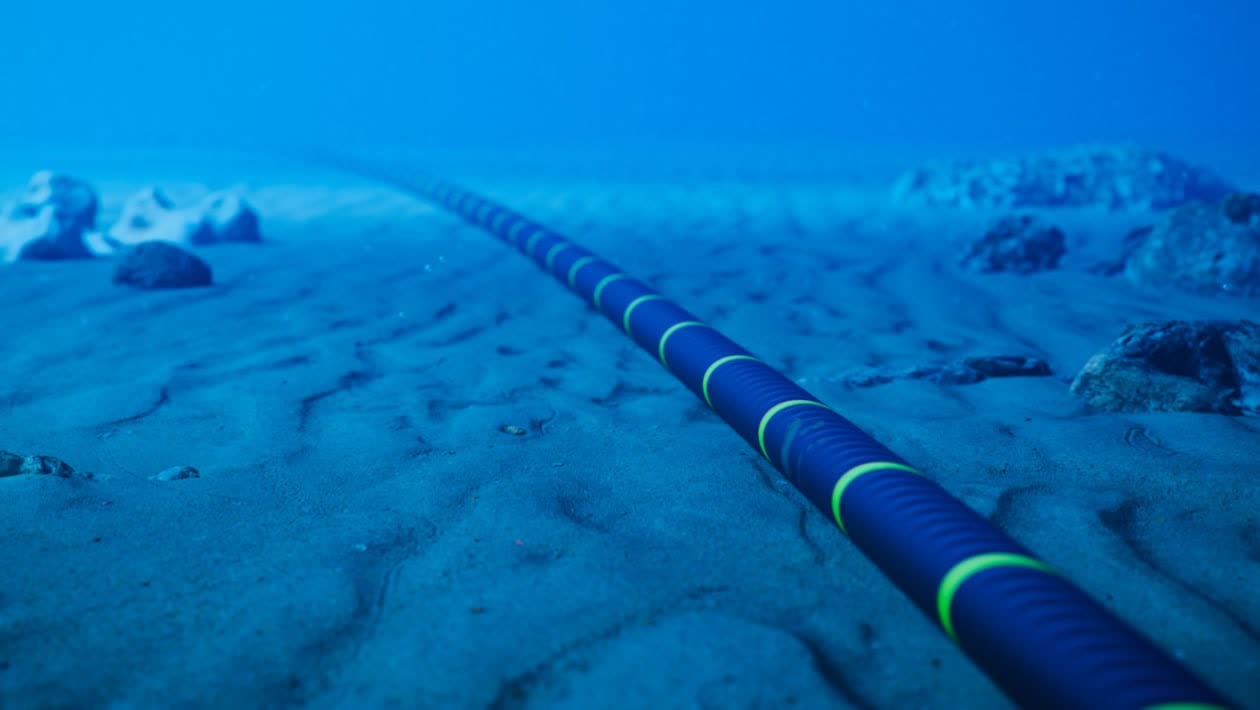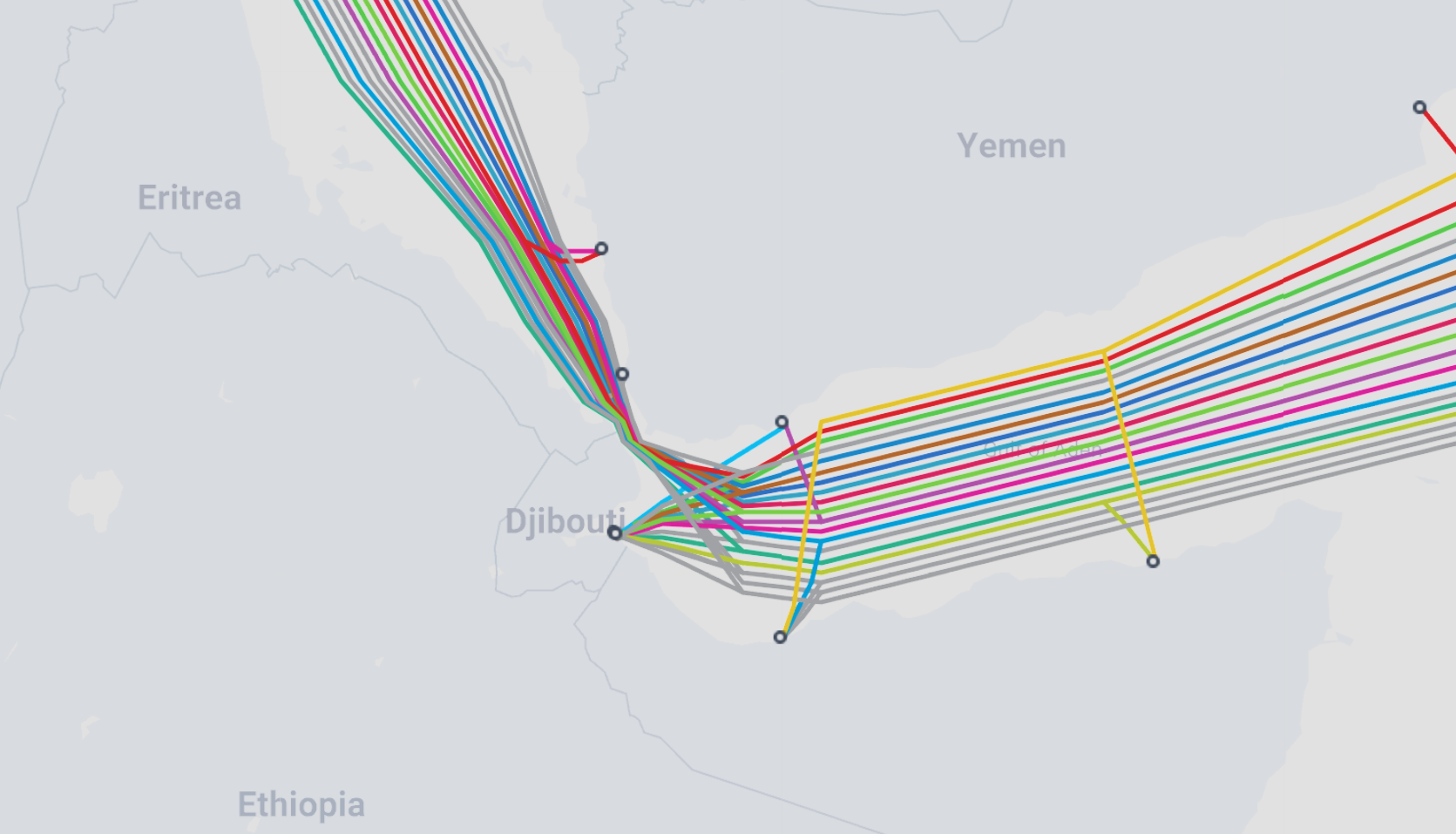What just happened? Yemeni Houthi rebels are believed to have damaged undersea data cables in the Red Sea that link Europe to Asia. The Iran-backed Houthis had already threatened to target the fiber optic cables, which carry an estimated 17% of the world's internet traffic, and it now appears that the group has carried out attacks.
Four of the at least 15 submarine cables that pass through the Bab al-Mandab Strait at the southern end of the Red Sea have been damaged in recent months. Israeli news publication Globes reports that the EIG, AAE-1, Seacom and TGN-EA cables were affected, with Seacom confirming its cable, which stretches between Kenya and Egypt, has experienced a break.
In December, a Telegram channel linked to Houthi militants published a map of the cables running along the Red Sea bed. It was accompanied by a message that read: "There are maps of international cables connecting all regions of the world through the sea. It seems that Yemen is in a strategic location, as internet lines that connect entire continents – not only countries – pass near it."
Telecom firms linked to the UN-recognised Yemen government recently said they feared Houthi rebels were planning to sabotage the cables.
The damage is reported to be "significant, but not critical," thanks to the many other cables in the region. Seacom says it has re-routed traffic from its damaged cable to others in the area.
Repairing the cables won't be simple. Work could take at least eight weeks and those who carry it out risk coming under attack from Houthi rebels, who have targeted civilian ships in the Red Sea. The Reg notes that cable repair ships are usually booked well in advance, too.
Of the damaged cables, the Asia-Africa-Europe AAE-1 is said to be the most strategic. The 15,534-mile line connects Southeast Asia to Europe.
It was previously reported that the Houthis lack the submersibles necessary to reach the cables, but there are points where they run at a depth of 100 meters (328 feet), reducing the need for advanced submarines.
Damaging undersea data cables is something we've seen before, though the suspected culprit is usually Russia. The European Commission recently warned that these cables need their security and resilience improved in light of increasing global tensions.

